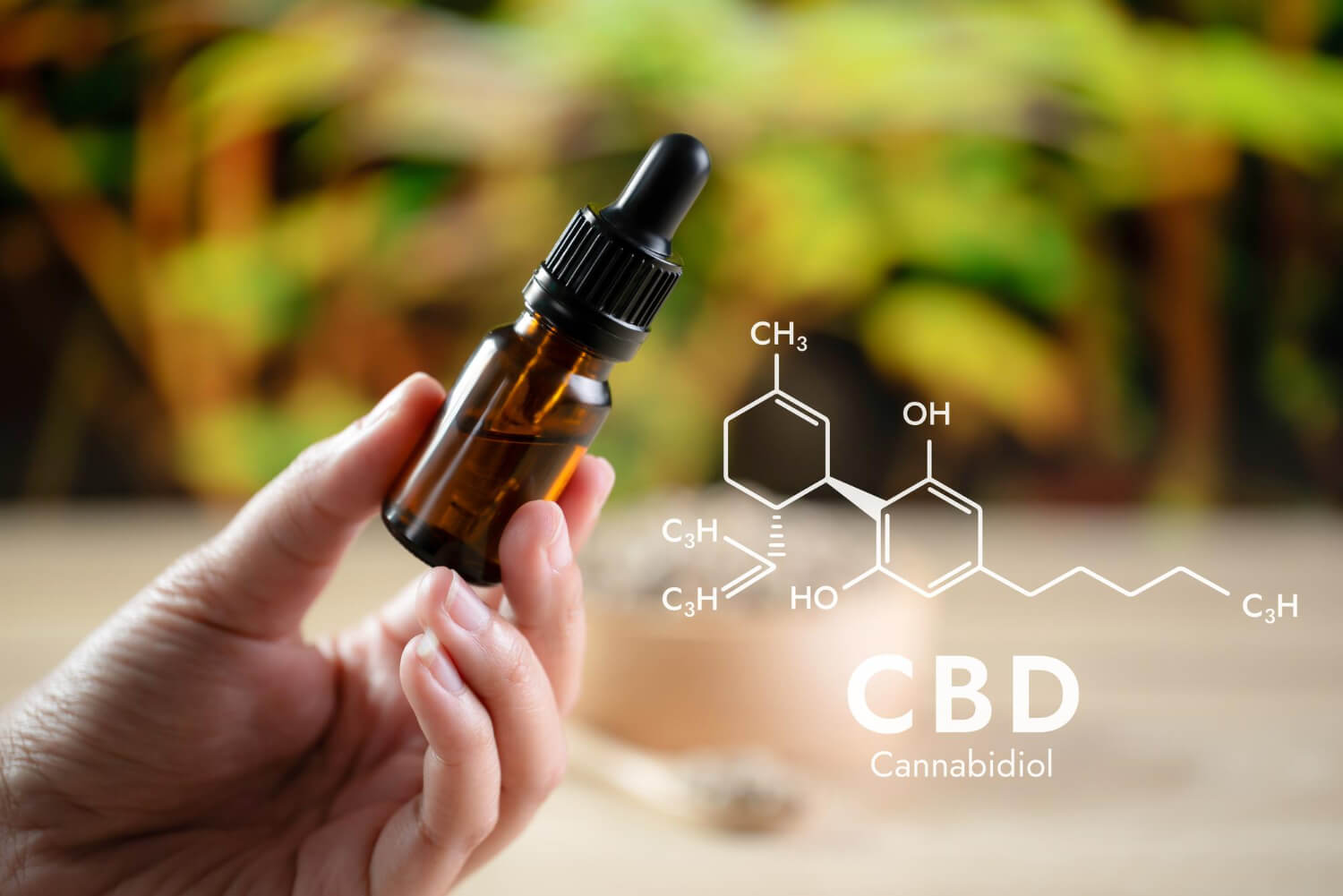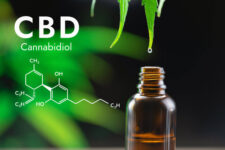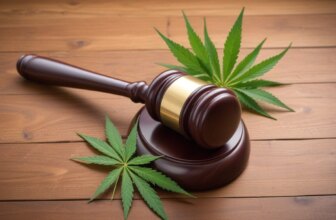The amazing and worthwhile potential of CBD is not surprising news anymore. CBD benefits have always been helpful to several people around the world and they continue to do the same to everyone who uses them to utilize one or more of its favorable benefits. So, let us learn more about what CBD has in store for everyone!
What is CBD?
CBD, also known as cannabidiol, is a compound present in marijuana plants. Contrary to misconceptions CBD does not contain THC (tetrahydrocannabinol), the psychoactive component responsible for the “high” associated with marijuana use. [1]
CBD has been assisting individuals in addressing health and wellness concerns, for numerous years. These concerns encompass anxiety, depression, sleep difficulties, and alleviating pain.
Using a specified amount of CBD for any of these disorders or issues may help alleviate the patient’s problems and help keep them at ease. [2] These benefits can make anyone interested to try out CBD for once and see what good it could do to them and their health.
When used within the prescribed safety limits, people are usually seen to enjoy the benefits of CBD conveniently. However, using more than the specified amount might cause you to develop several health-related problems such as weakness, drowsiness, decreased appetite, nausea, diarrhea, and a lot more. [3]
More information about CBD by clicking here.
Proven Benefits Of CBD
As mentioned earlier, the potential of CBD keeps on unleashing more and more as more studies are being done on it. Currently, there are hundreds of benefits known to mankind.
Interestingly enough, even medical science is backing up these benefits once they have been properly researched and worked upon. [4]
To help you with your experience regarding CBD and its wholesome lot of benefits, here is a brief overview regarding some of the most popular benefits of CBD for human beings.
Mood Disorders
CBD has shown a remarkable response in treating several psychiatric and mood-related disorders. Anxiety, depression, and post-traumatic stress disorder (PTSD) are some of the disorders that CBD has been found to potentially alleviate when used regularly and, in a controlled manner according to research. [5]
Insomnia
CBD has proven to be immensely beneficial, for individuals dealing with insomnia, disturbed sleep, and nightmares associated with PTSD. It helps keep the mind relaxed and stress-free. In the long run, CBD could help the person sleep a deep, relaxing sleep. [6]
Pain Relief
Pain relief is yet another beneficial impact of CBD. It could help relieve both localized and generalized pain. CBD only acts on the pain receptors and helps them downregulate the pain and inflammatory responses so that the person can enjoy a pain-free interval. [7]
Cures Opioid Addiction
According to a few recent studies done on this topic, there is solid evidence that CBD has helped cure withdrawal symptoms in patients trying to overcome their opioid addiction.
This study showed that when such people took CBD during their withdrawal period, it helped cure certain cravings such as toning down their salivary cortisol rates, bringing their heart rate within normal limits, curbing their anxiety, and the general craving for this drug. [8]
Reduces Insulin Resistance
According to another research, it was found that CBD has an impact on insulin resistance levels.
In diabetic patients, it was found to reduce the levels of ‘Resistin’, a substance that causes insulin resistance. Simultaneously it also raised the levels of Glucose Insulinotropic Peptide (GIP) which facilitates the timely and regular secretion of insulin. [9]
These advantages have proven to be extremely beneficial, for individuals who encounter challenges. At least with the usage of CBD, they could remain assured that they would not have to face any serious side effects if used properly and within the prescribed limits. Several studies are still undergoing research to unveil the other benefits of CBD.
CBD And Pain Management
When discussing the impact of CBD on pain reduction and its related symptoms there have been studies that have contributed to our understanding of this effect. These studies have shed light on how CBD can help individuals deal with concerns.
Although no study claims to fully understand the mechanism behind the pain relief properties of CBD, few have claimed to find the ‘closest’ reason as to why this happens.
These studies have given rise to various theories explaining how CBD could ease pain. One theory proposes that CBD’s ability to decrease inflammation might extend its pain-relieving effects. When inflammation goes down in a certain body area, people might feel prolonged relief from their pain symptoms. [10]
Furthermore, another study proposes that CBD could help alleviate pain by improving the brain’s reabsorption of adenosine. This increased reuptake helps in restoring adenosine levels to normal. If levels become higher, they are very likely to reduce the pain sensations in the body. [11]
Hence employing CBD in moderation has the potential to alleviate pain across levels of intensity. However, it is best if the person only uses it intermittently and in the amount that is appropriate according to their age and weight so as to avoid the occurrence of any side effects.
CBD And Anxiety
Perhaps one of the earliest and the most common uses of CBD that was brought to awareness was its remarkable role in anxiety. CBD is known to reduce or even resolve anxiety faster than any other chemical substance known to man.
It is because of its powerful effects that it is considered to be used as a modality of treatment in several mood disorders such as generalized anxiety disorder, panic disorder, major depressive disorder, and many others. [12]
Regarding the mechanism through which CBD works to reduce anxiety, it works to activate neural receptors on the brain’s amygdala. It simultaneously works to activate the CB1 receptors in the amygdala as well as the 5-HT1a receptors. [13]
Both these receptors help increase feelings of goodness and happiness within the brain. An individual’s anxiety levels can increase significantly when one or both of these receptors are blocked, leading to the development of mood-related disorders.
Additionally, it has been observed that products with a higher CBD percentage and lower THC percentage have proven to be effective in reducing anxiety and depression. This further supports the idea that CBD plays a role in providing relief from anxiety and depression. It is expected that this benefit might also help people treat their disorders without any medication, thanks to CBD.
How To Use CBD?
Interestingly enough, as soon as the experts and manufacturers got to know about the limitless potential of CBD, they wanted to jump on the opportunity to introduce products and infusions that would help people make the most out of their CBD experience.
After encountering these situations a diverse range of CBD products, infusions, and various CBD variations were introduced to the market. Nevertheless, there are still doubts surrounding the availability of these products. [14]
In a handful of locations worldwide, it is convenient to purchase and obtain these products without much effort. However, in some places, it may be necessary for individuals to acquire a prescription beforehand to avoid any uncertainties.
Below are some of the CBD-related products that have been made available in markets across the world;
- CBD Creams & Lotions:
These creams and lotions are meant to be used topically. They work best for pain relief. Some lotions have also been infused with essential oils and soothing extracts to help promote sleep in people with insomnia.
- CBD Oils:
CBD Oils are a must-have product for people with insomnia. It is recommended that putting a few drops of this oil under the tongue helps induce a deep, relaxing sleep for everyone who uses it.
- CBD Capsules & Gummies:
Similar to any pill or capsule, these CBD pills or capsules should be taken in the same manner. However medical professionals typically prescribe these pills for medicinal purposes.
Gummies are another delectable option for people who are not comfortable with adding another pill to their daily routine.
Conclusion – Why Should You Take CBD?
All in all, CBD is indeed a very wholesome and beneficial product for anyone who uses it. Its potential is limitless, there might be even a lot of undiscovered benefits that haven’t been found yet.
With its popularity increasing by the day, that day is not far when every other person would be advising and using CBD for a better and healthier life.
However, at the same time, it is also recommended that people should use it with care and in moderation so that they may continue using it for a long time without experiencing any side effects or reactions!
FAQs
How Does CBD Make You Feel?
Keeping in mind the relaxing and soothing impacts of CBD, it is safe to say that the usage of CBD has very relaxing and calming properties on the individual’s mind. They help keep everyone’s anxiety and depression at bay and make sure that the person who takes it feels a bit relieved from their ‘normal’ depressed, anxious state.
If prescribed accordingly, CBD could also help relieve anxiety, pain, and depression as well as help induce sleep in people who have been restless and sleepless for so long.
In this manner, CBD turns out to be a much-needed ‘escape’ from all the worries, stress, and frustration in one’s life!
Does CBD Get You High?
This has been a popular topic of several discussions and arguments that center around ‘CBD’. Well, much to everyone’s dismay, CBD is not intoxicating at all.
CBD contains no ‘THC’ or ‘tetrahydrocannabinol’ which is the active ingredient or the chemical responsible for the intoxicating behavior of other CBD variants. So technically, when there is no THC in CBD, it is not intoxicating at all.
This misconception is one of the major reasons why the majority of countries and states are reluctant to introduce CBD as a beneficial supplement or product at the national level. The more people become aware of this, the easier it will be to help introduce CBD for its countless benefits.
Can CBD Interact With Other Medications?
Right now, we do not have strong proof that can say for sure if this is true or not. But there is a good and strong chance that CBD might change how medicines work if taken together. Especially if someone needs specific medicines regularly; in such people, it may work to alter the mechanism of action entirely. For those people, it is really important to be careful if they’re thinking about using CBD. It might be safer for them not to use it because taking too much CBD without proper rules could seriously affect important parts of the body like the brain, heart, and nerves.
Can Pregnant Or Breastfeeding Women Take CBD?
There are obvious risks of taking CBD, THC, hemp, and marijuana in every person. Yet, during pregnancy and breastfeeding, there are two unique situations that involve the health of both the mother and the child.Research indicates that using CBD while pregnant might impact the baby’s growing brain and even influence childbirth, especially if CBD is used frequently by the mother.When it comes to breastfeeding, it’s important to remember that THC, a component of CBD, can linger in breast milk for around six days. Because of this, it is the safest practice to completely stay away from CBD and its products during this time.
Related:
References:
- Meissner, H., & Cascella, M. (2020). Cannabidiol (CBD). https://www.ncbi.nlm.nih.gov/books/NBK556048/
- Rapin, L., Gamaoun, R., El Hage, C., Arboleda, M. F., & Prosk, E. (2021). Cannabidiol use and effectiveness: real-world evidence from a Canadian medical cannabis clinic. Journal of cannabis research, 3(1), 1-10. https://www.ncbi.nlm.nih.gov/pmc/articles/PMC8223341/
- Sholler, D. J., Schoene, L., & Spindle, T. R. (2020). Therapeutic efficacy of cannabidiol (CBD): a review of the evidence from clinical trials and human laboratory studies. Current addiction reports, 7, 405-412. https://www.ncbi.nlm.nih.gov/pmc/articles/PMC7880228/
- Moltke, J., & Hindocha, C. (2021). Reasons for cannabidiol use: a cross-sectional study of CBD users, focusing on self-perceived stress, anxiety, and sleep problems. Journal of cannabis research, 3(1), 1-12. https://www.ncbi.nlm.nih.gov/pmc/articles/PMC7893882/
- Shannon, S., Lewis, N., Lee, H., & Hughes, S. (2019). Cannabidiol in anxiety and sleep: a large case series. The Permanente Journal, 23. https://www.ncbi.nlm.nih.gov/pmc/articles/PMC6326553/
- Kaul, M., Zee, P. C., & Sahni, A. S. (2021). Effects of cannabinoids on sleep and their therapeutic potential for sleep disorders. Neurotherapeutics, 18, 217-227. https://www.ncbi.nlm.nih.gov/pmc/articles/PMC8116407/
- Mlost, J., Bryk, M., & Starowicz, K. (2020). Cannabidiol for Pain Treatment: Focus on Pharmacology and Mechanism of Action. International journal of molecular sciences, 21(22), 8870. https://doi.org/10.3390/ijms21228870 https://www.ncbi.nlm.nih.gov/pmc/articles/PMC7700528/
- Prud’homme, M., Cata, R., & Jutras-Aswad, D. (2015). Cannabidiol as an intervention for addictive behaviors: a systematic review of the evidence. Substance abuse: research and treatment, 9, SART-S25081. https://www.ncbi.nlm.nih.gov/pmc/articles/PMC4444130/
- Mattes, R. G., Espinosa, M. L., Oh, S. S., Anatrella, E. M., & Urteaga, E. M. (2021). Cannabidiol (CBD) use in type 2 diabetes: a case report. Diabetes Spectrum, 34(2), 198-201. https://www.ncbi.nlm.nih.gov/pmc/articles/PMC8178711/
- Villanueva, M. R. B., Joshaghani, N., Villa, N., Badla, O., Goit, R., Saddik, S. E., … & Khan, S. (2022). Efficacy, safety, and regulation of cannabidiol on chronic pain: a systematic review. Cureus, 14(7). https://www.ncbi.nlm.nih.gov/pmc/articles/PMC9288157/
- Boyaji, S., Merkow, J., Elman, R. N. M., Kaye, A. D., Yong, R. J., & Urman, R. D. (2020). The role of cannabidiol (CBD) in chronic pain management: an assessment of current evidence. Current pain and headache reports, 24, 1-6. https://pubmed.ncbi.nlm.nih.gov/31980957/
- Wright, M., Di Ciano, P., & Brands, B. (2020). Use of cannabidiol for the treatment of anxiety: a short synthesis of pre-clinical and clinical evidence. Cannabis and cannabinoid research, 5(3), 191-196. https://www.ncbi.nlm.nih.gov/pmc/articles/PMC7480724/
- Skelley, J. W., Deas, C. M., Curren, Z., & Ennis, J. (2020). Use of cannabidiol in anxiety and anxiety-related disorders. Journal of the American Pharmacists Association, 60(1), 253-261. https://pubmed.ncbi.nlm.nih.gov/31866386/
- Wiley, J. L., Gourdet, C. K., & Thomas, B. F. (2020). Cannabidiol. https://www.ncbi.nlm.nih.gov/books/NBK565434/









